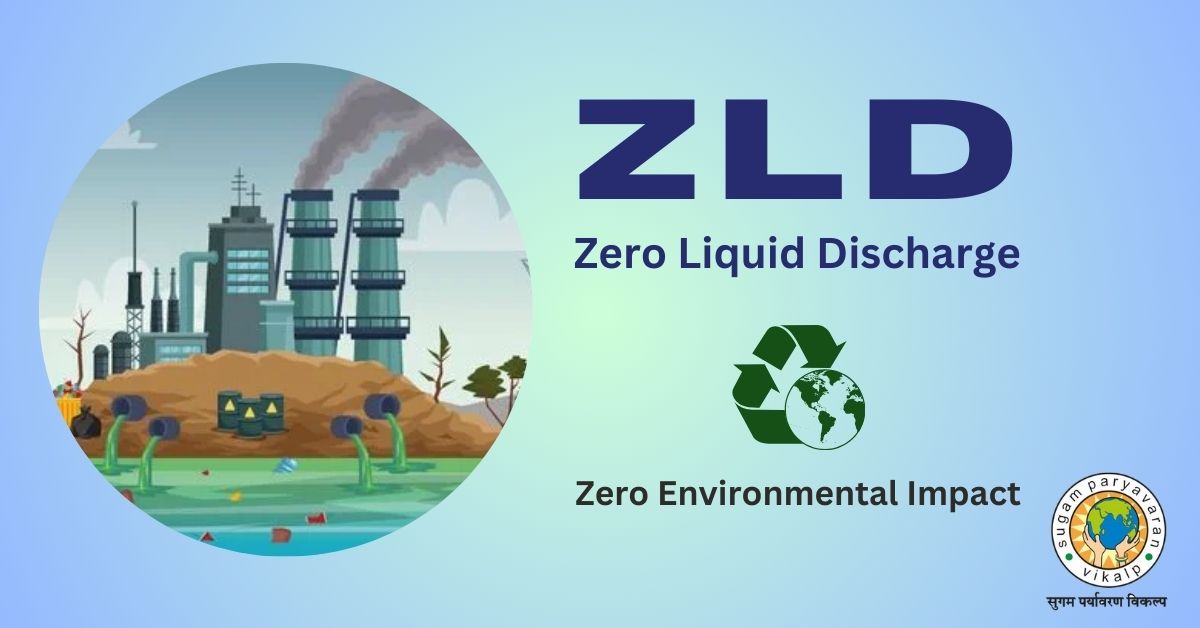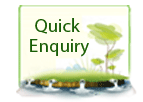Zero Liquid Discharge (ZLD)for Industries

Date: MARCH 30, 2023 | Author: DR AVINASH KADAM (Ph. D, IIT Bombay)(MD at Sugam Paryavaran Vikalp Pvt Ltd)
Introduction
Regulatory authorities across world has a mammoth task of persuading industries to set-up effluent treatment plants & CETPs and operate them to meet with prescribed standards. The industries identified as water polluting industries mainly are: - Sugar, Distilleries, Pulp and Paper, Tanneries, Chemicals, Dyeing and Textiles, Refineries, Food, Dairy and Beverages, Electroplating and others. Many of these industries are in turn water demanding industries.
Necessity for Zero Liquid Discharge (ZLD)
Most of the current ETPs including CETPs are dysfunctional. After having recognition of problems that many industrial sectors are not willing to achieve discharge norms and this ultimately necessitates to work towards Zero Liquid / effluent discharge standard. Imposition of ZLD shall make the industry to understand necessity to design and operate the treatment facilities seriously.
Definition of ZLD
In simple word, it mean no discharge outside/inside. That does not mean reverse charging of untreated/treated effluent into ground water table. Zero Liquid discharge refers to installation of facilities and system which will enable industrial effluent for absolute recycling of permeate and converting solute (dissolved organic and in-organic compounds/salts) into residue in the solid form by adopting method of concentration and thermal evaporation. In the name of ZLD, no forceful injection into ground water table is to be tried which has been unfortunate practice in the past. It also prohibits utilizing effluents / permeate for irrigation / or horticulture. ZLD would strictly means recycling treated effluent back for re-use in industrial / or domestic purpose but, exclude use / disposed in ambient environment.
Technical Roadmap for ZLD
Adoption of Zero Liquid Discharge system will be applicable to zero-down organic load, recover metals and other constituents. The treated effluents can be then subjected for concentration and evaporation. The concentration method quite often involves the adoption of Reverse Osmosis (RO) and Nano Filtration (NF) methods. The evaporation methods involve incineration/ drying / evaporation of effluent in multi effect evaporators (MEE) or Multi Vapor Recompression (MVR) systems. Cost-wise, achieving ZLD will be costly proposition but, now becoming necessity because of the past experience of effluent treatment by industries. ZLD adoption is becoming essential rather than imposition.

Application of ZLD in Industries
The significant industrial sectors like Sugar, Distilleries, Tanneries, Pulp & Paper, Textile, Dyeing, and Dairy would need special emphasis for enforcement of ZLD. ZLD is applicable to industries having high BOD and COD load, color bearing effluents, having metals, pesticides and other toxic / hazardous constituents.




